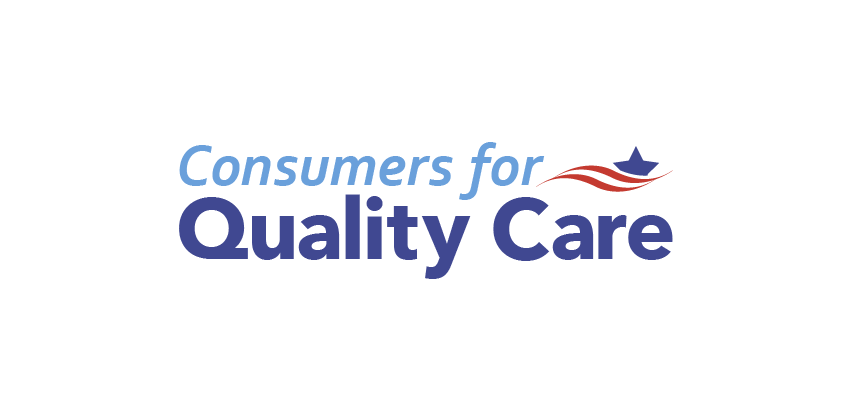Consumers for Quality Care Responds to Committee on Education and the Workforce Employee Retirement Income Security Act (ERISA) Reforms Request for Information
By Consumers for Quality Care, on March 14, 2024

For Immediate Release
March 14, 2024
Contact: press@consumers4qualitycare.org
Consumers for Quality Care Responds to Committee on Education and the Workforce Employee Retirement Income Security Act (ERISA) Reforms Request for Information
WASHINGTON, D.C. – Consumers for Quality Care (CQC), a coalition of advocates and former policy makers working to provide a voice for patients in the health care debate, issued the following response to the U.S. House of Representatives Committee on Education and the Workforce’s Request for Information on potential reforms to the Employee Retirement Income Security Act (ERISA).
“Dear Chairwoman Foxx and Members of the Committee:
Consumers for Quality Care (CQC) is a coalition of advocates, former policymakers, and 35 patient and consumer advocacy organizations committed to providing a voice for patients in the health care debate. We applaud your efforts to identify reforms that can increase affordability and quality in employer-sponsored health coverage and appreciate the opportunity to submit our comments in response to the Committee on Education and the Workforce Request For Information.
Our organization is dedicated to advancing the interests and well-being of patients, and we know that patients are struggling with the economics of health care.
Out-of-pocket health care costs like premiums, deductibles, copays, and coinsurance continue to rise, while health insurance covers less and less and requires patients to delay or defer treatment with outright denials, drastic prior authorization requirements, and draconian cost sharing assistance policies.
Hospitals across the country systematically saddle low-income patients who should qualify for free or reduced care with bills they never should have received. They also deploy predatory collection practices to hound vulnerable patients who are unable to pay. Despite a federal rule requiring hospitals to post all prices online in an easily accessible and searchable format, only 36 percent of hospitals were fully compliant as of July 2023. At the same time, hospitals are consolidating quickly, creating medical monopolies and leaving communities with few options for care, while they are simultaneously in the dark on what they will be expected to pay for services.
Given this environment, it’s no surprise that 100 million people in America are carrying health care debt. According to one report, middle class families with incomes between $50,000 and $100,000 see the highest rates of medical debt and that medical debt is higher for middle-class families regardless of whether or not they have health insurance. Unfortunately, this isn’t a new issue. Before the pandemic, more than half of Americans with employer-sponsored health insurance had delayed or postponed recommended treatment for themselves or a family member in the previous year because of cost.
This problem is so big that it is going to require big changes. As the core of America’s health care system, key changes to employer-sponsored insurance via ERISA reforms have the potential to help millions of Americans better afford access to high-quality care. CQC urges the Committee to take action on the following issues:
- Enforce Copay Accumulator Ban. Copay accumulators shift costs from insurance companies to patients. This year, a federal court decision affirmed that consumers should be able to use pharmaceutical manufacturers’ coupons to reduce the out-of-pocket costs of their prescription medications at the pharmacy counter without being penalized by their insurance company, yet these anti-patient policies persist. We urge you to consider a mechanism by which health insurers are required to remove these expensive and harmful policies from all employer-sponsored plans.
- Address Key Components of the Lower Costs, More Transparency Act (H.R. 5378). The Lower Costs, More Transparency Act passed the U.S. House of Representatives with an overwhelmingly bipartisan vote. Critical elements in the bill have the potential to help protect consumers from bad practices being utilized by hospitals and pharmacy benefit managers (PBMs) across the country. Building increased price transparency, site-neutrality and PBM reform into employer-sponsored plans will protect more Americans from failing into medical debt.
- Hospital Price Transparency. Hospital prices vary widely across the country, and the highest and lowest prices for standard outpatient services can vary by nearly 300%. Beginning January 1, 2021, hospitals were required by CMS to publish the price of medical services that can be scheduled in advance. Despite this rule, many hospitals have yet to comply. Employers and the employees their plans cover should have access to the important data that allows employers to hold insurers accountable against actual pricing information and allows patients to understand what they will be expected to pay for services and treatments and shop for the best value.
We appreciate the Committee’s dedication to increasing affordability of coverage and quality of care for the millions of Americans covered by employer-sponsored health insurance plans. To learn more about the harm that can be caused by copay accumulators, we urge you to view CQC’s recent consumer awareness video. For more information on initiatives consumers want to see to help lower their costs, we urge you to review CQC’s 2022 Negotiator’s Guide to Health Care Reform.
Sincerely,
Consumers for Quality Care
###
ABOUT
Consumers for Quality Care (CQC) is a coalition of advocates and former policymakers working to provide a voice for patients in the health care debate as they demand better care. CQC is led by a board of directors that includes the Honorable Donna Christensen, physician and former Member of Congress; Jim Manley, former senior advisor to Senators Edward Kennedy and Harry Reid; Jason Resendez, community advocate and health care strategist; and Mary L. Smith, former head of Indian Health Service.
